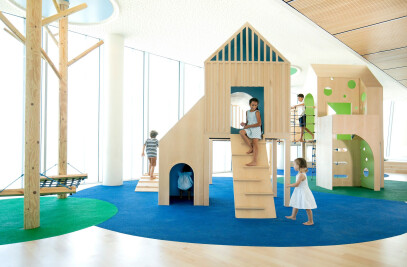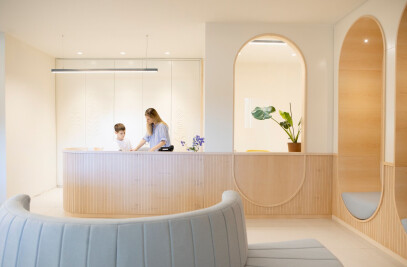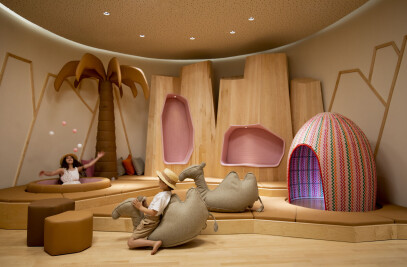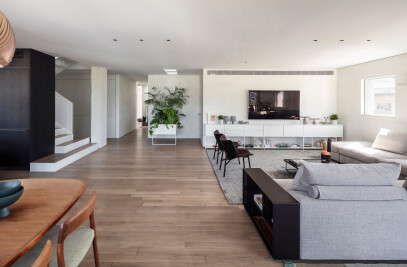Rethinking What 21st Century Education Should Look Like
Tel Aviv-based award-winning designer, Sarit Shani Hay’s flagship project, the first inclusive school in Tel Aviv puts a fresh face on what inclusive education should look like for school-aged children of today’s generation. Her eponymous studio took on the challenge of creating a pluralistic learning environment that encourages accessibility, equality and flexibility of universal design.
The first inclusive school in Tel Aviv was designed to support the inclusive learning model by creating an environment that works for everyone. This public school, covering 2,000sqm, supports the integration of students with disabilities into regular classrooms, with the understanding that each child is unique with his/her specific needs. Twenty-five percent of the students have physical disabilities, emotional problems, or are on the autistic spectrum and interact together in a space that encourages collaboration while celebrating the diversity of the students. Shani Hay, a pioneer in the field of children's environments, has specialized over the last decade in the design of public spaces for children with a focus on innovative learning spaces throughout Israel. “This project gave us the opportunity to explore in-depth what happens when design meets pedagogy and how can we use design as a tool for social change- as a tool for promoting inclusion, and enhancing all children’s well being,” explains Shani Hay.
The process of developing her design concept was preceded by conversations with pedagogues and experts that understand the special needs. The goal was to translate the philosophy of inclusive education into a physical environment that promotes joyful experiential learning. This designed space inspires kids to be engaged in multiple ways while enhancing a feeling of belonging and empathy. The school includes rooms for different types of classes and treatments, such as physical therapy, yoga/meditation, as well as private study. Sustainable, custom-made flexible furniture is situated alongside intimate soft nooks in each classroom. Calm colors and natural wooden materials were used to avoid emotional overload. Life-skill activity stations promote learning through play, for example a unique abacus with letters and shapes engraved on all sides for learning Braille and Sign language. The concept of a group circle was used to create a circular seating bench split into two halves, allowing for different seating arrangements wherever possible for any child wanting to join in, for example, a child in a wheelchair. “It is my studio’s mission that the 21st century educational environment will continue to embrace and implement inclusive learning so that all children grow up being equal partners in society,” says Shani Hay.
Shani Hay was honored with a 2020 FRAME Award Jury Prize in the Social category for the First Inclusive School in Tel Aviv. The Social Award is one of eight design categories FRAME honors annually to celebrate positive social and environmental impact. In total, 1,076 projects were submitted from 51 countries all over the world to compete in this prestigious design competition. This project was completed in collaboration with L2 Tsionov Vitkon Architects and the Inclu Foundation, whose inclusive learning model was used to develop the design strategy.

































